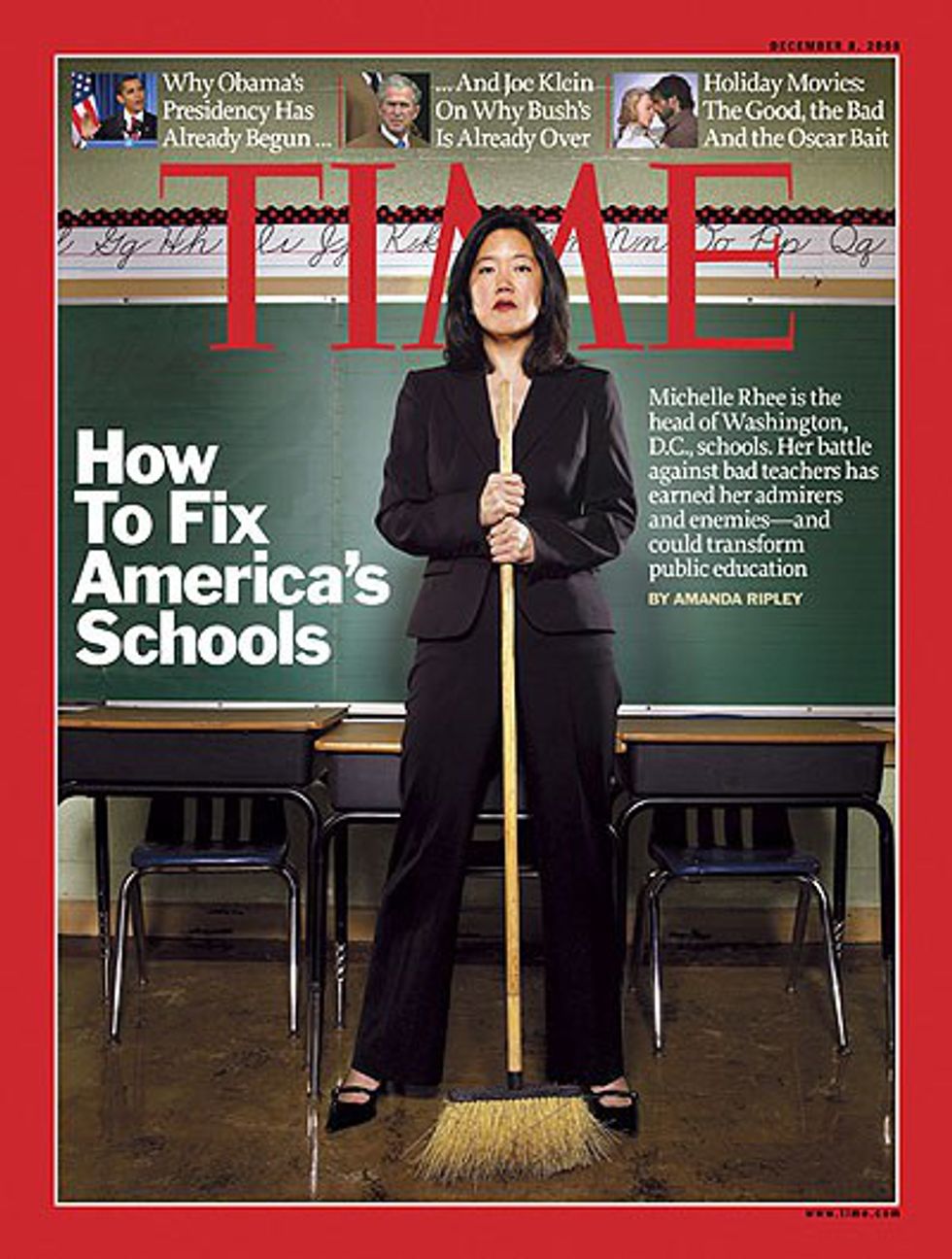With President-Elect Donald Trump’s cabinet slowly starting to take shape, one name in contention significantly stands out from the rest when it comes to the position of Education Secretary: Michelle Rhee.
While Rhee, appointed by Mayor Adrian Fenty as chancellor of Washington, D.C.’s schools from 2007-2011, might be at odds with Trump when it comes to the disastrous Common Core program which she supports, there are other similarities and advantages that Rhee brings to the table.
As chancellor, Rhee was tasked with catalyzing DC’s low-performing public school system, and that she did.
From DailyWire.com:
"Rhee closed 23 schools, fired 36 principals and cut staff by 15 percent" in her first year alone. She also put an end to teacher tenure and instituted merit pay as part of a new contract where teachers' salaries were based on the performance of their students. Teachers that couldn't get students to perform better were terminated.
Rhee also supported D.C.'s Opportunity Scholarships program — which gave vouchers to poor families to send their children to private schools. After meeting with poor families in D.C., Rhee wrote in her book Radical, "Who am I, I thought, to deny this mom and her child an opportunity for a better school, even if that meant help with a seventy-five-hundred-dollar voucher? If they got a voucher and her child could attend a really good Catholic school, perhaps, why would I stand in the way—especially since I don’t have a high-quality DCPS alternative?"
While Rhee's moves were wildly controversial, all evidence indicates that her reforms were successful. National Review's Frederick Hess writes:
Stanford’s Tom Dee and the University of Virginia’s Jim Wyckoff have just published an important study on Washington D.C.’s controversial teacher-evaluation system. They find that the IMPACT system launched by former chancellor Michelle Rhee appears to boost teacher effectiveness and also makes it more likely that low-performing teachers will depart. Deservedly, their study got a lot of attention yesterday, including in the New York Times and the Washington Post.
Making clever use of regression-discontinuity design, the authors note that IMPACT appears to aid students both by “avoiding the career-long retention of the lowest-performing teachers and through broad increases in teacher performance.”
Leftist Jonathan Chait agrees, as he wrote for New York Mag in May:
Studies have found that Rhee’s teacher-evaluation system has indeed increased student learning. What’s more, the overall performance of D.C. public school students on the National Assessment of Education Progress (NAEP) has risen dramatically and outpaced the rest of the country. And if you suspect cheating or “teaching to the test” is the cause, bear in mind NAEP tests are not the ones used in teacher evaluations; it’s a test used to assess national trends with no incentive to cheat. (My wife works for a D.C.charter school.)
Still some critics have suggested that perhaps the changing demographics in Washington (which has grown whiter and more affluent) account for the improvement. Kristin Blagg and Matthew Chingos at the Urban Institute dig into the data, and the answer is: Nope, that’s not it.
Chait goes on to point out that the Urban Institute's research shows that the increases in test scores outpaced the expected amount by demographic changes alone.
Rhee, dubbed ‘Public Enemy No.1’ and ‘Wicked Witch’ by the teachers' union, is one of the toughest administrators in the country, and she earned her nickname by implementing some of the strongest teacher accountability standards in the country. The type of change that Rhee brought to D.C. is exactly the type of change that would be beneficial to the rest of the country, and Trump would be wise to rely on Rhee to be the one to implement that change.






















